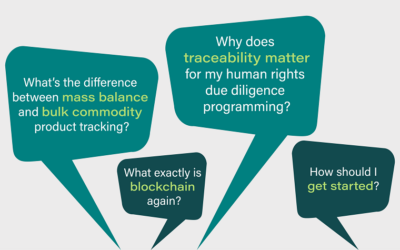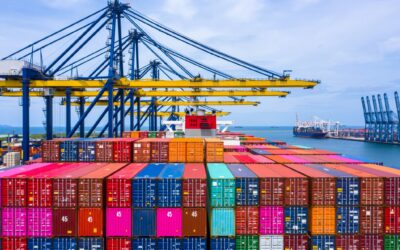Verité in the News
Read coverage of Verité’s work in The New York Times, The Atlantic, The Guardian, The Associated Press, The Los Angeles Times, and more.
Register Now: Webinar on Building Management and Worker Capacities to Advance Worker Participation
Worker participation is often overlooked as a strategy for building a competitive, sustainable business that can keep up with rapidly evolving social and legal standards in global supply chains. Even in countries where workers’ rights to freedom of association (FOA) are extremely limited due to national laws or the lack of government enforcement, corporations can still ensure workers in their supply chain have access to effective grievance mechanisms and systems that ensure workers have a say in workplace matters.
Webinar on Forced Labor Risks in Construction Supply Chains
The construction industry, with its reliance on low-skilled, low-pay manual jobs often filled by migrants, has long faced significant forced labor risks globally. We’ll discuss these risks, the challenges of monitoring the sector’s long and complicated supply chains and how our new due diligence tools set can help. Customized to the sector, the tools are one feature of our fully refreshed ResponsibelSourcingTool.org (RST), which has been updated and expanded with the support of the U.S. Department of State’s Office to Monitor and Combat Trafficking in Persons.
Breakthrough on Historic EU Corporate Sustainability Due Diligence Directive
The European Union (EU) reached a historic deal on the Corporate Sustainability Due Diligence Directive (EU CSDDD). For the first time, large companies and those in high-risk sectors will be required to implement risk management systems to address their adverse impacts on people, communities, and the environment if they wish to do business in the EU market.
Verité Welcomes New Board Members!
We’re thrilled to announce the addition of Elizabeth Akanbombire and Minal Patel Davis to Verité’s board. Their profound expertise and experience in collaborating with key stakeholders to pioneer innovative solutions for issues such as forced labor, child labor, human trafficking, gender-based violence, and good governance will play a vital role in steering Verité toward deeper impact.
Addressing questions on traceability and labor rights due diligence with the STREAMS Supply Chain Traceability Matrix
Nine billion dollars (1)–a conservative estimate on how much the supply chain traceability sector will be worth within 10 years, or even sooner. It’s a big business. And it’s growing fast because companies know that understanding where their products come from and being able to offer assurances to regulators and consumers is critical to being able to run profitable and resilient businesses.
G7 Don’t Miss the Boat on Human Rights
Recently in Osaka-Saki, Japan, the G7 Trade Ministers convened to discuss key issues affecting the global trading system and the topic of fishing subsidies was high on the agenda. Each year, governments worldwide provide an estimated $35.4 billion to subsidize their fishing fleets and over 60% of these subsidies go to commercial fishing that contribute to depletion of the world’s fish stocks. The G7 Ministers pledged to work on additional provisions to the historic agreement struck last year by the World Trading Organization (WTO) to reform fishing subsidies. The call for action was to seek greater alignment with Sustainable Development Goal 14.6, which addresses overfishing and Illegal, unreported, and unregulated (IUU) fishing.
Due Diligence Training for US Government Officials
The United States and other governments are creating laws and regulations to require more effective management and prevention of these risks by those who sell goods and services to the government and by those who import goods into the US and other countries. As a result, government officials of many types – from contracting and procurement officials to Congressional staff – are increasingly engaged in matters related to labor and human rights risks in global supply chains.
Online Training for Procurement Professionals in Healthcare Systems
This is a training developed for professionals in healthcare systems involved in the procurement of goods and services. It examines the risk of forced labor and labor trafficking in healthcare, specifically regarding supply chains and service providers. This free course has no prerequisites.
Webinar: Introducing the Supply Chain Traceability Matrix
Do you have questions about traceability in supply chains? Are you interested in learning about how traceability can support labor due diligence? This webinar will introduce the Supply Chain Traceability Matrix, a free resource developed by Verite’s Supply Chain Tracing and Engagement Methodologies (STREAMS) Project for leveraging traceability to support labor rights in global supply chains.




















